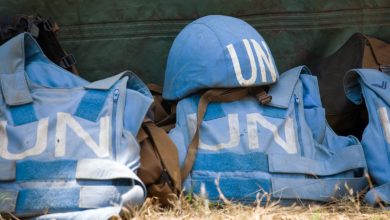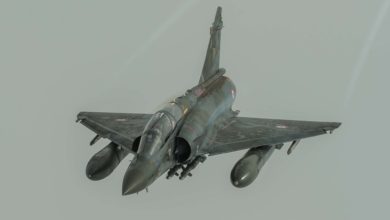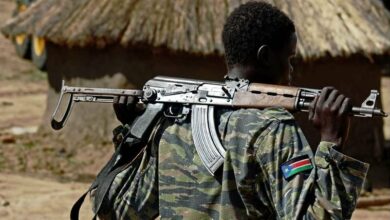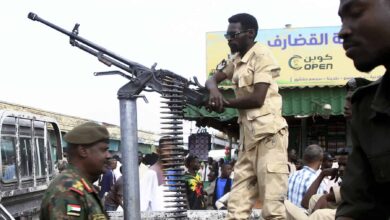Haftar tells Macron he will abide by Libya ceasefire
French President Emmanuel Macron met Monday, March 9 with Libyan military commander Khalifa Haftar, who insisted he would commit to a ceasefire with the United Nations-recognized government in Tripoli as long as its allied militia fighters pledge to sign on as well.
Haftar “assured that he was ready to sign the ceasefire document, but this commitment would end if the militias do not respect it,” an Elysee Palace official said after the one-hour meeting, which was not announced on Macron’s agenda.
From it’s base in the east of the country, Haftar’s self-styled Libyan National Army have pushed toward Tripoli since April 2019, fighting the Government of National Accord (GNA) and its allied militias.
Their advance has stalled, and representatives from both sides agreed to finalize a new ceasefire deal this month after recent talks in Geneva.
But a previous ceasefire brokered by Turkey and Russia in January has repeatedly been violated, raising doubts about whether a lasting truce can be reached.
France is backing the United Nations’ push for talks between the warring rivals, and Macron met separately with Haftar and GNA leader Fayez al-Sarraj in Paris last May.
While France says it favors neither leader, it has made clear it views Haftar as a key player for rebuilding Libya, having helped curtail Islamist militants in the large swathes of territory his forces control.
Macron also asked on Monday about an oil blockade imposed after Haftar’s forces blocked exports from leaving main ports, depriving Libya of a key revenue source, the Elysee official said.
They also discussed the intervention of foreign nations in the Libya conflict, after world leaders agreed in Berlin in January to end all foreign interference and uphold a weapons embargo.
That deal is under pressure after Turkey announced it had sent dozens of military trainers and fighters from Syria to shore up the GNA, which is also supported by Qatar.
Egypt, the United Arab Emirates and Russia have backed Haftar, and France has been accused of supporting Haftar’s forces in the past.
Moscow has denied claims that it has sent thousands of mercenaries from the private military contractor Wagner to bolster the offensive against Tripoli.
With reporting from AFP












